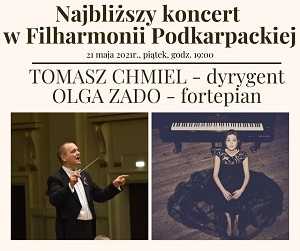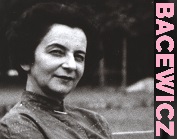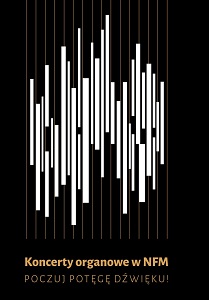 We invite you to a recital of the outstanding organist Andrzej Chorosiński, during which we will hear three masterpieces. Only one of them was originally conceived by the composer as an organ composition, the other two are arrangements of pieces for a cappella choir and piano.
We invite you to a recital of the outstanding organist Andrzej Chorosiński, during which we will hear three masterpieces. Only one of them was originally conceived by the composer as an organ composition, the other two are arrangements of pieces for a cappella choir and piano.
The concert will begin with the monumental Fantasia and Fugue on the chorale Ad nos, ad salutarem undam by Ferenc Liszt, written in 1850 in Weimar. In it, the composer relied on the chorale from the first act of the then popular opera The Prophet by Giacomo Meyerbeer, to whom he dedicated his work. Then we will listen to Agnus Dei by Krzysztof Penderecki, which he wrote at the news of the death of Cardinal Stefan Wyszyński, and later included it in the monumental Polish Requiem. The work was heard for the first time during the mourning ceremony of the cardinal on May 31, 1981 in the Cathedral Basilica of St John the Baptist in Warsaw. The composition begins slowly, in quiet dynamics, evoking a mood of prayerful concentration. The music gradually becomes more and more passionate and expressive, and after the poignant, marked in the score quasi in grido (almost like a scream) climax on the word peccata (sins), it is softened again and slowed down.
The last piece in the concert programme, the suite Pictures at an Exhibition, is one of the most famous works by Modest Mussorgsky. It was created as a tribute to the composer’s friend, painter Wiktor Hartmann. Mussorgsky’s suite was originally intended for piano, but quickly began to be arranged for other ensembles. The best known is undoubtedly the arrangement prepared for a great orchestra by Maurice Ravel. During this concert, the piece will be performed in a version prepared by the German composer Oskar Gottlieb Blarr and Andrzej Chorosiński.
Media patronage: Polish Music Information Centre POLMIC.
More information: https://www.nfm.wroclaw.pl/en/component/nfmcalendar/event/8331








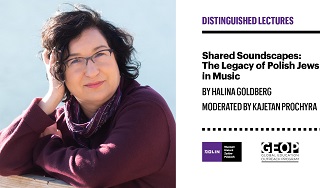 Professor Halina Goldberg will deliver the first "Distinguished Lecture" in POLIN Museum’s 2021 series. On 23 May at 8.00 p.m. she will discuss the contribution of Polish Jews to the field of music.
Professor Halina Goldberg will deliver the first "Distinguished Lecture" in POLIN Museum’s 2021 series. On 23 May at 8.00 p.m. she will discuss the contribution of Polish Jews to the field of music.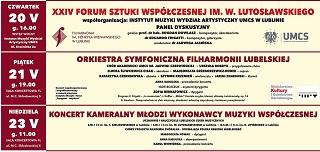
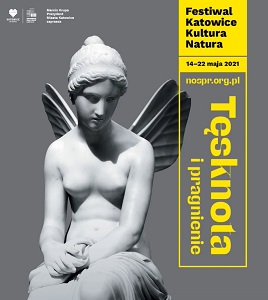 For the sixth time Katowice Culture Nature, the flagship festival of classical music in Katowice, will bring together outstanding artists from all over the world in the NOSPR concert hall. The theme of this year's edition is "Longing and desire". The programme of six concerts, scheduled for 14-22 May 2021, travels through different shades of longing and various kinds of desires.
For the sixth time Katowice Culture Nature, the flagship festival of classical music in Katowice, will bring together outstanding artists from all over the world in the NOSPR concert hall. The theme of this year's edition is "Longing and desire". The programme of six concerts, scheduled for 14-22 May 2021, travels through different shades of longing and various kinds of desires. 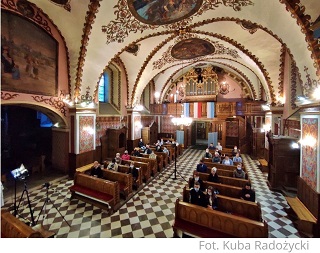 W dniach 11-16 maja 2021 w Sanoku odbył się już II Międzynarodowy Festiwal Muzyki Organowej i Kameralnej. Organizatorem tego przedsięwzięcia jest Stowarzyszenie Pro Artis, dyrektorem artystycznym Festiwalu – dr hab. Piotr Rojek, prof. AMKL we Wrocławiu, zaś dyrektorem organizacyjnym – prezes Stowarzyszenia Łukasz Kot.
W dniach 11-16 maja 2021 w Sanoku odbył się już II Międzynarodowy Festiwal Muzyki Organowej i Kameralnej. Organizatorem tego przedsięwzięcia jest Stowarzyszenie Pro Artis, dyrektorem artystycznym Festiwalu – dr hab. Piotr Rojek, prof. AMKL we Wrocławiu, zaś dyrektorem organizacyjnym – prezes Stowarzyszenia Łukasz Kot.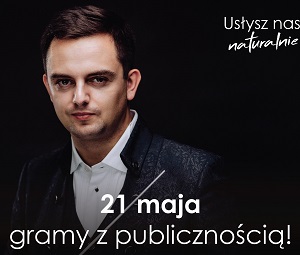 The H.M. Górecki Silesian Philharmonic invites you on 21 May 2021 at 7.00 p.m. to a concert of the Silesian Chamber Orchestra under the baton of Maciej Tomasiewicz. The programme composed of works by Max Bruch, Einojuhani Rautavaara, Witold Lutosławski and Béla Bartók will delight not only with the richness of the sound, but also with many references to folklore.
The H.M. Górecki Silesian Philharmonic invites you on 21 May 2021 at 7.00 p.m. to a concert of the Silesian Chamber Orchestra under the baton of Maciej Tomasiewicz. The programme composed of works by Max Bruch, Einojuhani Rautavaara, Witold Lutosławski and Béla Bartók will delight not only with the richness of the sound, but also with many references to folklore. 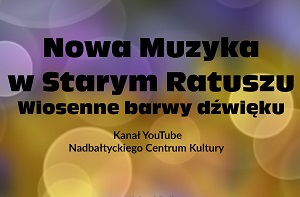 The first concert as part of this year's "New Music in the Old Town Hall" series will be held online on 21 May 2021 at 7.00 p.m. on the Baltic Sea Cultural Center's
The first concert as part of this year's "New Music in the Old Town Hall" series will be held online on 21 May 2021 at 7.00 p.m. on the Baltic Sea Cultural Center's 
